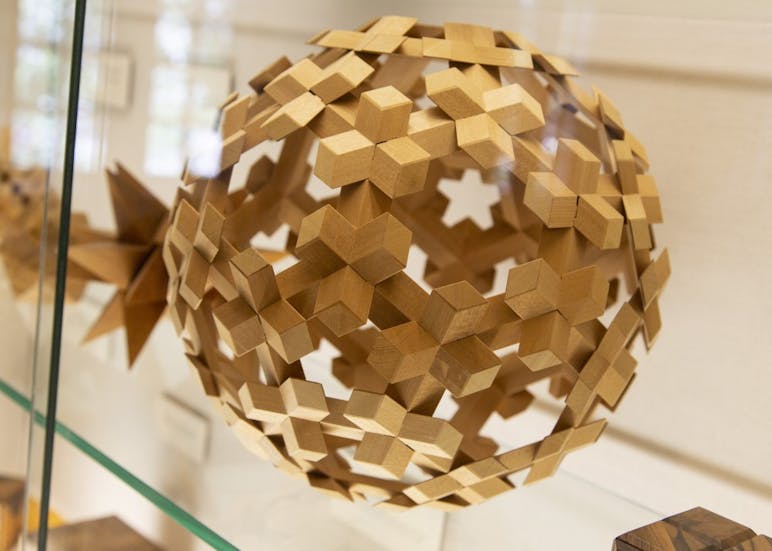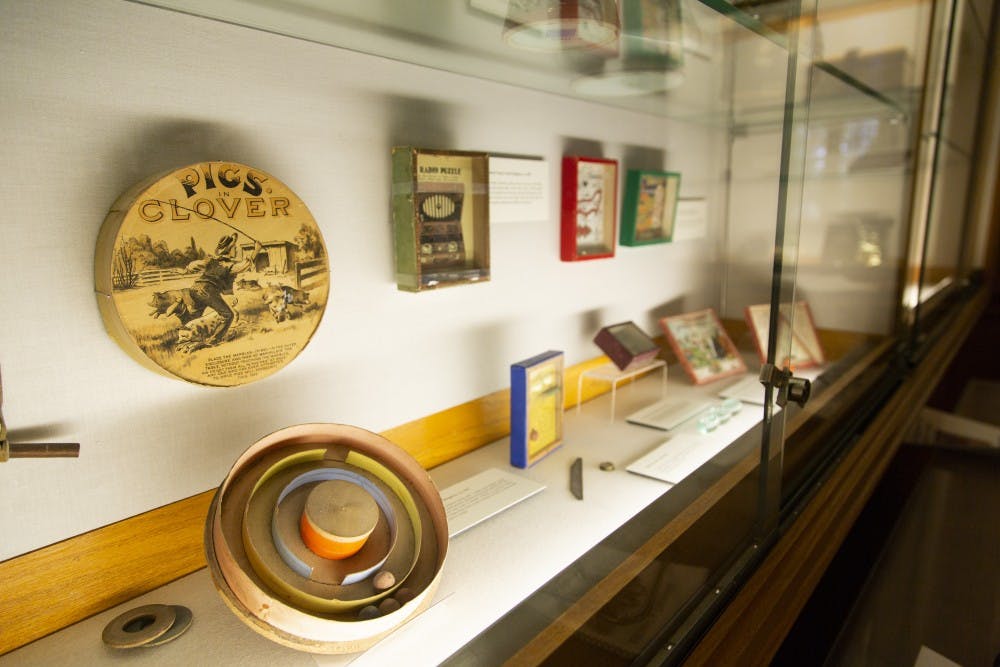Students sat around a rectangular table situated in the Slocum Puzzle Room at the Lilly Library, toying with intricate mechanical puzzle pieces to better understand not just the solutions, but the puzzle itself.
Professor Bret Rothstein teaches the graduate seminar, "The Early Modern Thing," which looks into art objects that surprise people with their hidden richness. During their usual class time on Wednesday, they moved from the classroom to the puzzle room at the library to better understand these concepts.
By playing with a wooden puzzle box, Rothstein said he wants students to think about the intention and the end goal of objects such as art pieces and architectures.
“When an object misbehaves for us, usually we think it’s by accident,” he said. “The pen runs out of ink, the car runs out of gas, gets a flat tire. But puzzles, all of these objects in this room, they’re designed to get that flat tire, right at the beginning.”
Rothstein said puzzles are not designed to make people feel tested, excluded or stupid. Puzzles are intended to make people work for the meaning instead of just giving up.
“One of the key things that we look for when we’re playing is some degree of difficulty, is a little bit of pushing back,” he said.
Rothstein said a rush comes with the solution of the puzzle. Then there’s a little bit of sadness when one realizes that they will never be surprised in the same way again. After a puzzle is completed they’ll be looking for new ones to assemble.
He said the reason people make puzzles is not to find a solution, but to ask more questions.

“Most of our lives we want things to be easy,” he said. “But at certain places we actually want things to be hard. We want to have to work a little because it wakes us up and it makes us more conscious.”
Rothstein said doing puzzles is similar to what students do on a college campus.
“We’re restless, that’s why we’re here,” he said. “We’re constantly asking these questions that are hard to answer."
Hannah Ollen, a graduate student in art history and a student in Rothstein’s seminar, said when solving puzzles, common sense is of no use and thinking creatively is the key.
“It’s good for exercise on your brain and your mind in a different way than you’re used to,” she said.
Ollen said she likes the puzzles and the seminar taught her the reward of solving a puzzle is not just the completion of the task, but a new puzzle to be solved.
Andrew Rhoda, the curator for puzzles at the Lilly Library, said as cliché as it sounds, working with puzzles does teach him perseverance and problem-solving skills.
“Solving puzzles really does help you think about things in a mathematical way,” Rhoda said. “It has definitely changed how I look at things and how I think about things.”
The Jerry Slocum Collection of mechanical puzzles at the Lilly Library has more than 34,000 puzzles and is the largest of its kind in the world. About 400 of them are on display in the Slocum Puzzle Room. The Lilly Library is open everyday except Sundays and hours can be found online.






